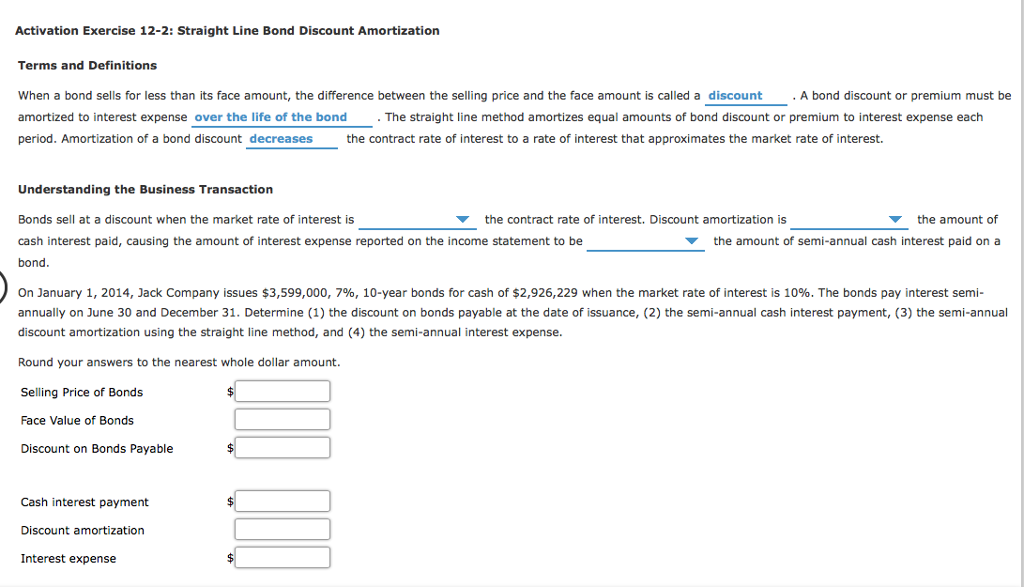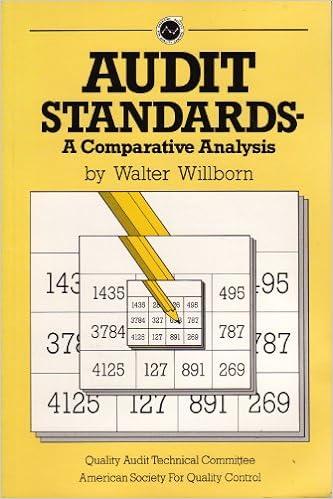Answered step by step
Verified Expert Solution
Question
1 Approved Answer
(The top 3 questions already answered could be wrong) When a bond sells for less than its face amount, the difference between the selling price
 (The top 3 questions already answered could be wrong)
(The top 3 questions already answered could be wrong)
When a bond sells for less than its face amount, the difference between the selling price and the face amount is called a discount. A bond discount or premium must be amortized to interest expense over the life of the bond. The straight line method amortizes equal amounts of bond discount or premium to interest expense each period. Amortization of a bond discount decreases the contract rate of interest that approximates the market rate of interest. Bonds sell at a discount when the market rate of interest is the contract rate of interest. Discount amortization is the amount of cash interest paid, causing the amount of interest expense reported on the income statement to be the amount of semi-annual cash interest paid on a bond. On January 1, 2014, Jack Company issues exist3, 599 000 7%, 10-year bonds for cash of exist2 926 229 when the market rate of interests 10%. The bonds pay interests semi annually on June 30 and December 31. Determine (1) the discount on bonds payable at the date of issuance, (2) the semi-annual cash interest payment, (3) the semi-annual discount amortization using the straight line method, and (4) the semi-annual interest expense. Round your answers to the nearest whole dollar amount. Selling Price of Bonds exist Face Value of Bonds exist Discount on Bonds Payable exist Cash interest payment exist Discount amortization exist Interest expense exist
Step by Step Solution
There are 3 Steps involved in it
Step: 1

Get Instant Access to Expert-Tailored Solutions
See step-by-step solutions with expert insights and AI powered tools for academic success
Step: 2

Step: 3

Ace Your Homework with AI
Get the answers you need in no time with our AI-driven, step-by-step assistance
Get Started


